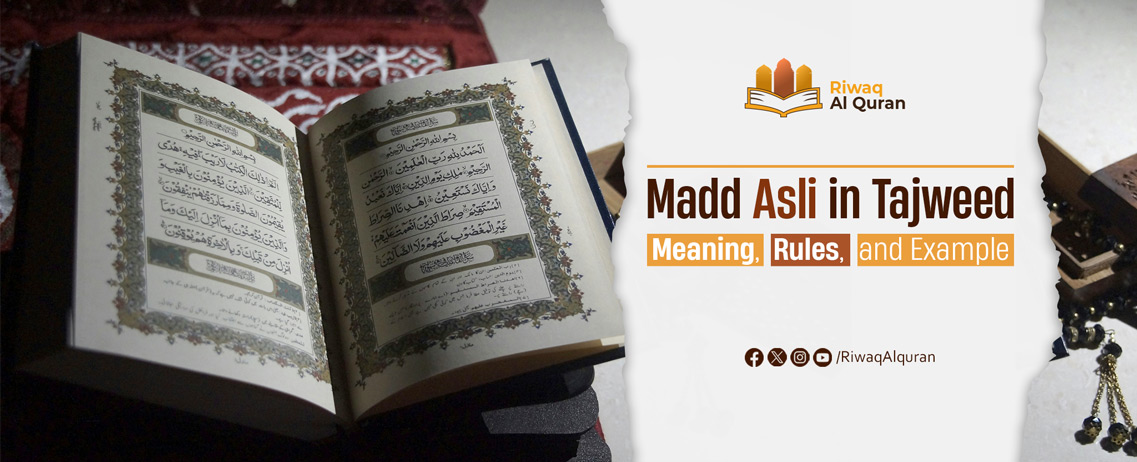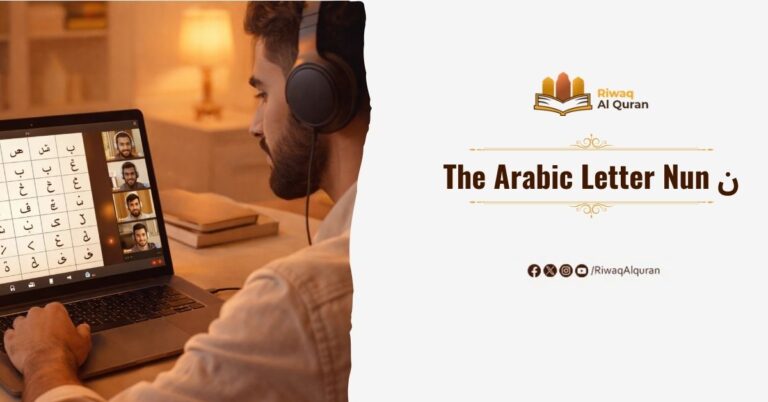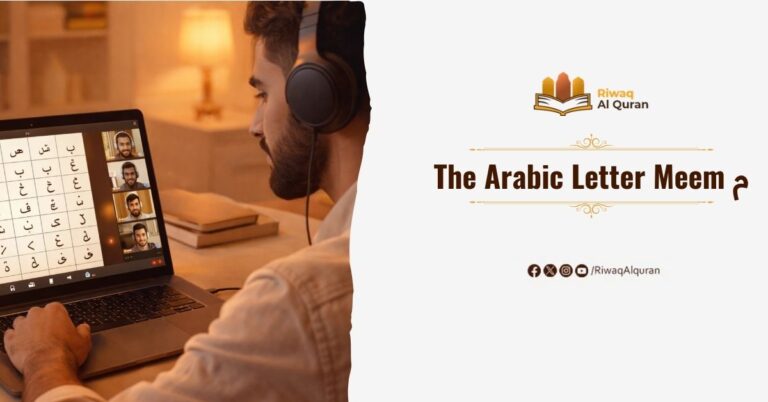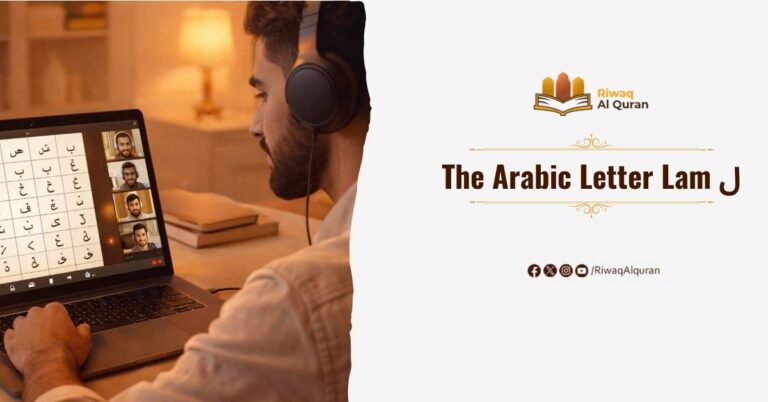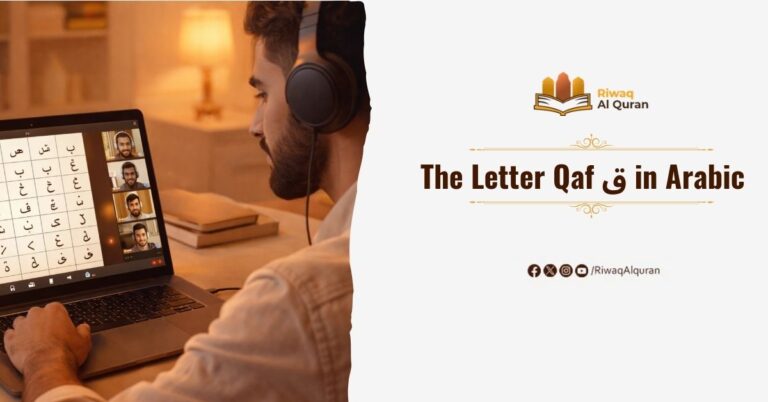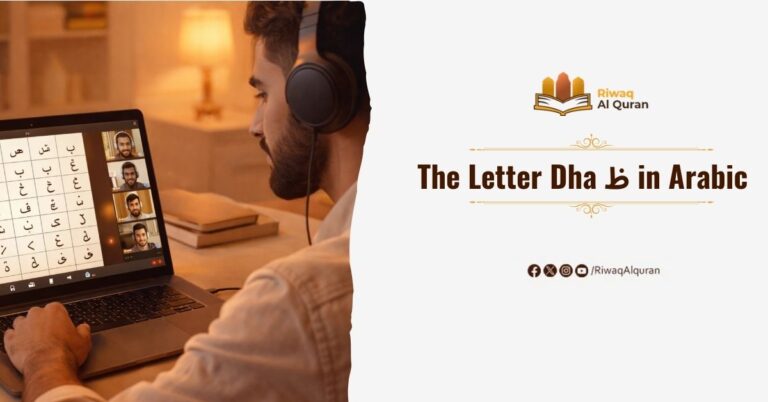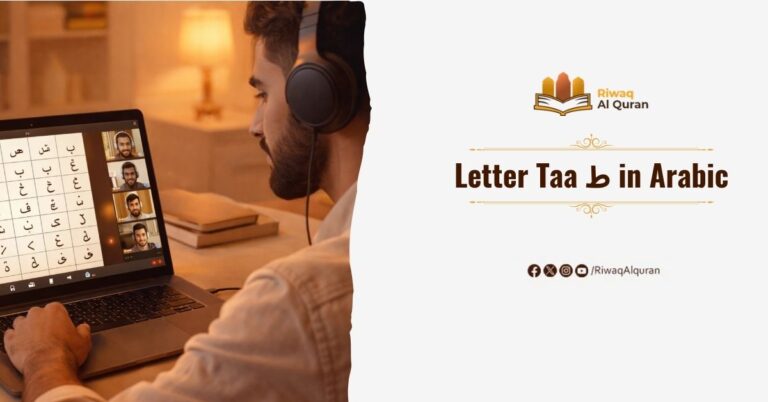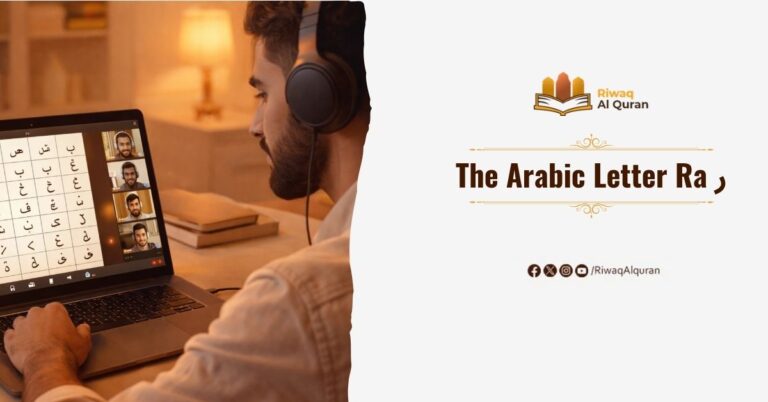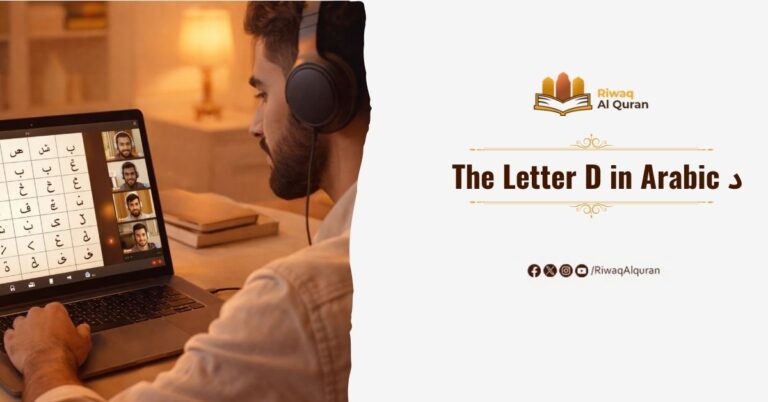Madd Asli (Arabic: مد أصلي) refers to the original or natural elongation of a vowel sound in the Arabic language, especially in the context of Tajweed [the rules governing the proper recitation of the Quran]. Madd Asli is one of the fundamental types of Madd (extension) used in the Quranic recitation and is essential for preserving the correct pronunciation, rhythm, and flow of the recitation, ensuring that the proper sound length is maintained.
In this article, we will first examine the meaning of the general term Madd. Then, we will tackle the meaning and conditions of Madd Asli in some detail. We will then give examples of Madd Asli in the Quran. After that, we will explore the three main types of Madd Asli with some examples from the Quran.
Table of Contents
Madd Asli In Tajweed:
To learn the meaning of Madd Asli, we need to learn first the meaning of the term “Madd” [extension]. In general, Madd means to stretch or prolong the sound of a vowel. In Tajweed, it indicates the elongation of a short vowel sound for a specific duration, typically for two, four, or six counts [known as Harakat in Tajweed] depending on the type of Madd.
The Meaning Of Madd Asli
Having explained the general meaning of Madd, we now need to define Madd Asli. Madd Asli is to extend the sound of any of the three Madd letters [Alif (ا), Waw (و), and Yaa (ي)] for two Harakat [typically two counts or beats]. Madd Asli is not optional; it must be observed for proper Tajweed and accurate recitation of the Quran.
It is called Madd Asli (Basic Madd) since it is the basic form of elongation, where the Madd letter is naturally extended for two Harakat. It is also called Madd Tabee’i (Natural Madd) [Arabic: مد طبيعي] because any Arabic speaker with proper Arabic pronunciation will give the three above-mentioned Madd letters two Harakat of extension.
Madd Asli Conditions
For the Madd to be Asli, there are two conditions:
1- The three Madd letters [Alif (ا), Waw (و), and Yaa (ي)] must be Sakin.
2- The preceding letter must have Fatha in the case of Alif (ا), Dammah in the case of Waw (و), and Kasra in the case of Yaa (ي).
If any of these conditions is unmet, the Madd cannot be Asli.


Madd Asli Examples
As we have seen, Madd Asli is one of the simplest and most fundamental types of Madd in Tajweed. The examples of this type of Madd are hard to count in the Quran. The following are just some examples.
” فَسُبْحَـٰنَ ٱلَّذِى بِيَدِهِۦ مَلَكُوتُ كُلِّ شَىْءٍۢ وَإِلَيْهِ تُرْجَعُونَ“
In this verse, the bold underlined words have Madd Asli: Alif (ا) in “فَسُبْحَـٰنَ”, Yaa (ي) in “ٱلَّذِى”, Waw (و) in “مَلَكُوتُ”, Yaa (يـ) in “إِلَيْهِ” and Waw in “تُرْجَعُونَ”.
“يَوْمَ تُقَلَّبُ وُجُوهُهُمْ فِى ٱلنَّارِ“
Here, the bold underlined words have Madd Asli: the second Waw (و) in “وُجُوهُهُمْ”, Yaa (ي) in “فِى” and Alif (ا) in “ٱلنَّار”.
“وَفِى ثَمُودَ إِذْ قِيلَ لَهُمْ تَمَتَّعُوا۟ حَتَّىٰ حِينٍ“
In this verse, the bold underlined words have Madd Asli: Yaa (ي) in “فِى”, Waw (و) in “ثَمُودَ”, Yaa (يـ) in “قِيلَ”, Waw (و) in “تَمَتَّعُوا” and Yaa (يـ) in “حِينٍ”.
Read more about: Madd Leen
Types Of Madd Asli
Madd Asli has three main types. These are Madd while connecting and in pause, Madd in pause only and not while connecting, and Madd while connecting only and not in pause. Below are more details about these three types.
1- Madd Asli maintained while connecting and in pause:
Madd letter is maintained while connecting and in pause (وصلاً ووقفًا). This means that the Madd letter is given two Harakat when it is connected to the following letter/sound and when the reciter stops at it.
Examples:
“وَنَادَوْا۟ يَـٰمَـٰلِكُ”
The word “يَـٰمَـٰلِكُ” has two Madd Asli [of Alif (ا)] that must be implemented while connecting the word with the following word and when the reciter stops at it.
“وَٱلشَّمْسِ وَضُحَىٰهَا”
Again, the word “ضُحَىٰهَا” has one Madd Asli [of Alif (ا)] that must be implemented while connecting the word with the following word and when the reciter stops at it.
2- Madd Asli maintained in pause only:
Madd letter is maintained in pause only and not while connecting (وقفًا دون الوصل). This means that the Madd letter is given two Harakat when the reciter stops at it only, but not when it is connected to the following letter/sound.
“ثُمَّ إِنَّهُمْ لَصَالُوا۟ ٱلْجَحِيمِ”
Here, the Waw Madd (و) in “لَصَالُوا۟” is maintained for two Harakat in pause only. However, if the reciter connects “لَصَالُوا۟” with “ٱلْجَحِيمِ”, the Waw Madd is omitted and only the Dammah is kept.
“وَكَانَ ٱللَّهُ عَلِيمًا حَكِيمًا”
Here, the Alif Madd (ا) in “عَلِيمًا” that replaces the Nasb Tanween (ً) if the reciter stops at it, is given two Harakat. However, it is pronounced as a regular Nasb Tanween [Noon sound] when connecting it with the following word (حَكِيمًا). ِAlso, when the reciter stops at “حَكِيمًا”, its Alif Madd (ا) is given two Harakat.
3- Madd Asli maintained while connecting only:
Madd letter is maintained while connecting only and not in pause (وصلاً دون الوقف). This means that the Madd letter is given two Harakat when it is connected to the following letter/sound, and not if the reciter stops at it. It is specific to the “ha pronoun” (third person pronoun) [Arabic: هاء الضمير].
Its sign, in the Quran, is a small و after third person pronoun with Dammah such as
“إِنَّهُۥ هُوَ ٱلسَّمِيعُ ٱلْعَلِيمُ” [Quran, 26:220]
and a small ي after third person pronoun with Kasrah, such as
“بَلَىٰٓ إِنَّ رَبَّهُۥ كَانَ بِهِۦ بَصِيرًۭا” [Quran, 84:15].
Read more about: Madd Badal


Learn Quran, Arabic And Islamic Studies Online With The Best Native Tutors
Riwaq Al Quran is a comprehensive online platform that offers personalized Quran, Arabic and Islamic Studies Online classes for individuals of all ages and backgrounds.
Their experienced instructors use a structured curriculum to cover Tajweed, Tafsir, and Memorization, providing easy and effective access to learning the Quran.
The advanced online classes allow for seamless communication and interaction between students and teachers. Join Riwaq Al Quran for a deeper connection with the Quran.
We offer several courses such as:
- Online courses for kids.
- Online Quran classes for kids and adults.
- Online Arabic courses
- Online Ijazah courses
- Online Islamic Studies courses.
Here are a sample of our set of Quran Courses that will be helpful for you:
- Online Tafseer Course: Delve into Quranic meanings with our insightful online Tafseer course.
- Noorani Qaida Online: Learn Quranic basics efficiently through our Noorani Qaida online program.
- Online Quran Recitation Course: Enhance Quranic recitation skills through our expert-led online course.
- Online Tajweed Classes: Master Tajweed rules for beautiful Quranic recitation in online classes.
- Quran Memorization Online Course: Memorize the Quran effectively with our specialized online memorization course.
- Online Qirat Course: Explore diverse Qirat styles with our comprehensive online Qirat course.
- Online Quran Classes for Kids: Nurture a love for the Quran in kids through interactive online classes.
Conclusion
Madd Asli is a key aspect of Quranic recitation that contributes to both the precision of pronunciation and the harmonious rhythm of the Quranic verses. By following this rule, reciters preserve the natural flow of the language, ensuring both the clarity and correct meaning of the words/phrases of the Quran. Therefore, it is a fundamental aspect of Tajweed that needs to be studied carefully and practiced by all Muslims.

